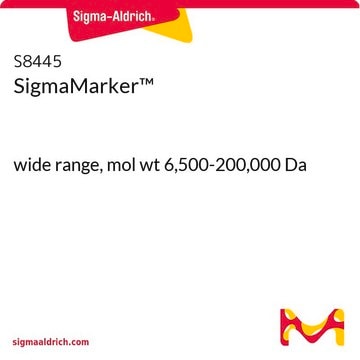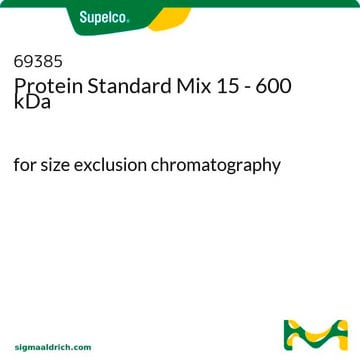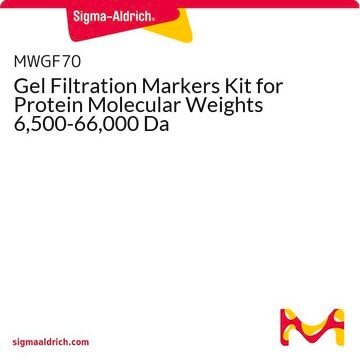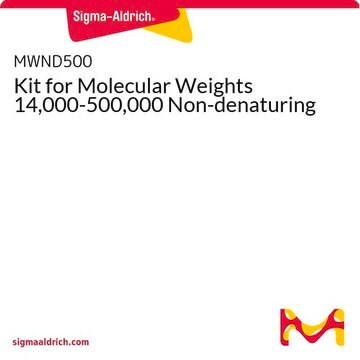M3546
Ultra-low Range Molecular Weight Marker (M.W. 1,060-26,600)
Synonyme(s) :
protein markers, protein molecular weight markers, protein standards
About This Item
Produits recommandés
Utilisation
vial sufficient for 400 applications on large gels (16 × 18 cm)
vial sufficient for 800 mini-gels (10 × 10 cm)
Conditionnement
vial of 200 μL
Température de stockage
−20°C
Application
Actions biochimiques/physiologiques
Forme physique
Mention d'avertissement
Danger
Mentions de danger
Conseils de prudence
Classification des risques
Acute Tox. 4 Dermal - Aquatic Chronic 3 - Eye Dam. 1 - Repr. 2 - Skin Sens. 1
Code de la classe de stockage
10 - Combustible liquids
Point d'éclair (°F)
Not applicable
Point d'éclair (°C)
Not applicable
Certificats d'analyse (COA)
Recherchez un Certificats d'analyse (COA) en saisissant le numéro de lot du produit. Les numéros de lot figurent sur l'étiquette du produit après les mots "Lot" ou "Batch".
Déjà en possession de ce produit ?
Retrouvez la documentation relative aux produits que vous avez récemment achetés dans la Bibliothèque de documents.
Les clients ont également consulté
Protocoles
Separation of various acids and compounds by molecular weight: PAA, PEI, PIDADMACl, PAS, cationic dextran, chitosan
Separation of various acids and compounds by molecular weight: PAA, PEI, PIDADMACl, PAS, cationic dextran, chitosan
Separation of various acids and compounds by molecular weight: PAA, PEI, PIDADMACl, PAS, cationic dextran, chitosan
Separation of various acids and compounds by molecular weight: PAA, PEI, PIDADMACl, PAS, cationic dextran, chitosan
Notre équipe de scientifiques dispose d'une expérience dans tous les secteurs de la recherche, notamment en sciences de la vie, science des matériaux, synthèse chimique, chromatographie, analyse et dans de nombreux autres domaines..
Contacter notre Service technique


